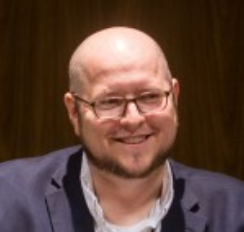Defending Our Students From Propaganda

By Matthew Bianco
An education that is solely "practical" leaves the mind defenseless against manipulation.
Testing drives education. Everyone has heard the criticism of teachers who “teach to the test.” The criticism, and the temptation, are only possible if testing does in fact drive education. Furthermore, what it tests communicates something about the purpose of the education.
Consider the example that Jeremy Tate often shares: What would happen if college entrance exams announced the addition of a French portion to their tests scheduled five years from now? High schools everywhere would offer, encourage, and perhaps even mandate French classes. High school students everywhere would begin taking French. The tests would be driving the education.
So what does it mean if a test offers readings from an op-ed written by Bernie Sanders? What is communicated as being important? What is the purpose of an education that asks you to read and respond to that piece? On the other hand, what does it mean if a test offers readings from Plato, Dante, Mary Shelley, and Frederick Douglass? What is communicated? What is the purpose of an education that asks you to read and respond to those authors?
The purposes of education throughout history have varied, yet two stand out: an education in what it means to be human, and an education whose purpose “is the mass production of producers and consumers,” as Wendell Berry puts it in his essay, “In Defense of Literacy” (which can be found in A Continuous History: Essays Cultural and Agricultural).
The only defense against the worst is a knowledge of the best. By their ignorance people enfranchise their exploiters.
Wendell Berry
The mass production of producers and consumers is an education purely practical. Can you count and do math? Can you read and write? What does not matter is whether you can read, recall, and relate that which is meaningful and beautiful; rather, can you be practical enough in your reading to understand an email from your boss or to hold a conversation with an English teacher at a dinner party? What does not matter is whether you can write (as Erasmus puts it) to inform, to persuade, and to delight; rather, can you write an email that lets me know whether you’ll make it to the meeting I’ve invited you to?
Taking a few more phrases from Berry’s work, an education that practices “subservience to the ‘practical'” is an education that is subservient to capitalism (in its worst sense), corporatism, and consumerism. The literacy that results from serving these masters is “no more than an ornament.” This education and this literacy are focused only on the immediate; they fail to recognize that language and literature “are about the world.”
Having received this education, we end up enslaved to propaganda—the politicization of religion, science, “facts,” emotional appeals, and used car salesmen—because we have not the language to protect ourselves, to see beyond the misuse of language that manipulates us. What is our defense? What are this language and literacy that protect us? Berry writes,
There is only one. We must know a better language. We must speak, and teach our children to speak, a language precise and articulate and lively enough to tell the truth about the world as we know it. And to do this we must know something of the roots and resources of our language; we must know its literature. The only defense against the worst is a knowledge of the best. By their ignorance people enfranchise their exploiters.
This is what it means to offer a test with readings from Plato, Dante, Shelley, and Douglass. It means giving students an education that is a defense against “language as weapon.” The student who knows literature from these giants can defend themselves, rhetorically, from the worst, because of their knowledge of the best: the best books, the “greats,” the classics. These will be students who can free themselves from exploitation rather than enfranchise it.
A test that draws from the great books is not elitist. It is a test that ennobles the masses—one that makes it possible, by the education it encourages, for everyone to become free from those who use language as a weapon. In truth, the very claim that the great books (and the test that uses them) are elitist is itself language being used to condemn a generation of students to continued exploitation.
Matthew Bianco is a homeschool father who has graduated all three of his children. He is the former Academic Director of Classical Conversations, and the current Executive Vice President of Consulting and Training for the CiRCE Institute, as well as the author of Letters to My Sons: A Humane Vision for Human Relationships.
___________________________________________________________________________________
If you liked this, take a look at some our other posts, like this profile of the late Roman philosopher Boethius, this piece on Hannah Arendt’s thoughts on education and their relevance to us today, or this essay on the idea of beauty.
Published on 16th June, 2020.